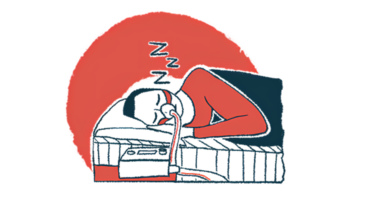Probiotic BPL1 Eases Abdominal Fat, Aids Mental Health of PWS Children, Study Finds

In older children with Prader-Willi syndrome (PWS), the probiotic supplement BPL1 reduced abdominal fat, social withdrawal and depression, while also easing insulin resistance, a study reported.
These findings are consistent with results from similar studies in adults with simple (non-genetic) obesity.
The study, “Effects of Bifidobacterium animalis Subsp. lactis (BPL1) Supplementation in Children and Adolescents with Prader–Willi Syndrome: A Randomized Crossover Trial,” was published in the journal Nutrients.
PWS, the most common cause of genetic obesity, results from a deleted section of the paternal chromosome 15 or a duplicate copy of the maternal version of this chromosome. The deletion or duplication (also called maternal disomy) leads to lack of function from genes in the paternal chromosome region, causing weak muscle tone, poor growth, and delayed development early in life, and increased appetite and accumulation of fat beginning at around age 4.
Abnormal eating, obesity, and mental health issues may arise if PWS is untreated. Early diagnosis and treatment significantly improve long-term outcomes in PWS, but obesity and mental health problems are still a significant burden for patients and their families.
Previous research has linked the gut microbiome (the microorganism community found in the digestive system) and obesity. In children with PWS, gut bacteria are associated with insulin resistance and obesity. Several strains of the gut bacteria Bifidobacterium animalis subsp. lactis (BAL) have been shown to reduce abdominal fat, insulin resistance, and behavioral symptoms in children with PWS.
The BAL strain BPL1, marketed by ADM Biopolis, was also found to lessen fat in animal models and in adults with obesity.
Researchers in Spain, including those with ADM Biopolis, conducted a crossover clinical trial (NCT03548480) to determine if BPL1 would ease the physical and mental health symptoms associated with PWS in children. Study participants, recruited from two hospitals in Spain over a six-month period in 2018, were 39 children who were on a diet and medication plan for at least two months prior to joining the study.
Children were randomly assigned to either once-daily oral treatment with 100 mg BPL1 or a placebo for 12 weeks (three month), followed by a washout period of the same duration. Then, in the final 12-week treatment period, those who previously were on BPL1 moved to a placebo while the earlier placebo group received the supplement.
Study goals included changes in obesity, insulin resistance measured using the homeostatic model assessment of insulin resistance (HOMA-IR), and fasting blood levels of fat, cholesterol, insulin, glucose (sugar), and hemoglobin A1c (HbA1c), a diagnostic marker of diabetes.
Of the 39 participants, one dropped out before treatment began, two left for health reasons, and one reported losing the medication. The mean age of the remaining 35 patients was 10.4 years, and their average body fat mass content was 40.8% (in adults, a body mass index greater than 30 is considered obese).
Blood fat, glucose, and HbA1c did not change in the children first treated, but the group continued to show insulin resistance. Apart from their higher glucose levels, no other differences were observed compared with patients first given placebo.
In an analysis of changes in gut bacteria abundance, BAL showed the largest change between the BPL1 treatment and placebo periods.
BPL1 treatment promoted a significant decrease in abdominal fat in patients older than 4.5 years, but not for the whole group. This finding is consistent, the researchers wrote, with what is known of PWS in children.
“Data from our study show improvements in abdominal adiposity after supplementing with probiotic BPL1 for 12 weeks compared to placebo. Notably, this effect was more evident when analyzing participants older than 4.5 years of age. It is not until approximately this age when children start showing increased interest in food and gaining excessive body weight and adiposity,” the study noted.
BPL1 treatment was also seen to reduce fasting insulin levels and ease insulin resistance, as seen in lower HOMA-IR scores for both groups during treatment periods. But its use did not affect excessive eating and caloric intake, or blood glucose, fat, or HbA1c levels.
Mental health was assessed in patients between the ages of 6 and 18 using parent-report questionnaires. BPL1 was seen to “induce modest but significant improvements” in withdrawal and depressive symptoms. A slight but statistically insignificant reduction in attention deficits was also observed.
The short nature of the study may have contributed to the muted behavioral effects recorded in the study, the team said. Notably, patients with maternal disomy, who are at higher risk for severe mental health effects, exhibited significant easing of withdrawal, depression, and attention deficits compared to children with deletions.
Among other study limitations was the relatively low number of participants, the researchers said.
“Given that these beneficial effects could be crucial for the disease prognosis, a follow-up study with a longer treatment period is required to demonstrate whether supplementation with BPL1 can provide a valid long-term therapeutic strategy for patients with PWS,” the researchers wrote.
“Finally, the implications of these results might go beyond the PWS context as data suggest that the probiotic could be equally effective in pediatric patients with simple obesity,” they added.
The probiotic was well tolerated, with no serious side effects reported, the study noted.






